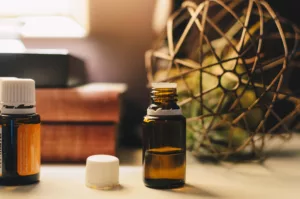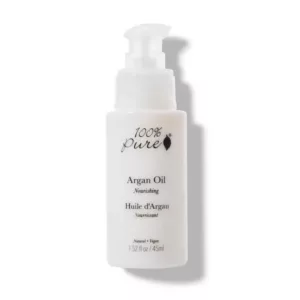Argan Oil’s Impact on Pores

In the world of skincare, the quest for the perfect beauty oil is never-ending. Among the many options available, argan oil has gained tremendous popularity for its versatility and potential benefits. But there’s one common question that often arises among those considering this oil for their skincare regimen: Does argan oil clog pores?
Argan oil, sometimes referred to as “liquid gold,” has been treasured for its nourishing and hydrating properties. But like any skincare product, it may not be suitable for everyone. Let’s dive into the science and practical aspects of argan oil to determine whether it’s pore-clogging or a skin-saving gem.
Before we tackle the question of pore-clogging, let’s familiarize ourselves with argan oil. This precious oil is derived from the kernels of the Argania spinosa tree, which is native to Morocco. It’s rich in essential fatty acids, antioxidants, and various vitamins that contribute to its reputation as a beauty elixir.
The Composition of Argan Oil
Argan oil is composed of several key elements:
- Fatty Acids: It contains a high percentage of oleic acid and linoleic acid. These fatty acids are known for their moisturizing and skin-barrier-repairing properties.
- Vitamins: Argan oil is a source of vitamins A and E, both of which have antioxidant effects and can benefit the skin.
- Polyphenols: These antioxidants help protect the skin from free radicals, which can cause premature aging.
- Squalene: This compound is also present in argan oil and is excellent for moisturizing and protecting the skin.
Argan oil is renowned for its versatility. It’s used not only in skincare but also in haircare and even as a dietary supplement. In skincare, it’s used for moisturizing, softening the skin, and potentially addressing issues like dryness, redness, and fine lines.

Does Argan Oil Clog Pores?
The question of whether argan oil clogs pores is a valid one, especially for individuals with oily or acne-prone skin. The answer, however, is not a simple yes or no. The impact of argan oil on your skin largely depends on your skin type, the purity of the oil, and how you use it.
The Role of Comedogenicity
A key term to understand when discussing whether a skincare product clogs pores is “comedogenicity.” Comedogenicity refers to the likelihood of a substance to cause or worsen comedones, which are the non-inflammatory acne lesions known as blackheads and whiteheads.
Different skincare products, including oils, have varying comedogenic ratings. These ratings range from 0 (non-comedogenic) to 5 (highly comedogenic). To put things into perspective, mineral oil, which is often unfairly maligned, has a comedogenic rating of 0-2, while coconut oil, known to cause issues for some, has a rating of 4.
Argan Oil’s Comedogenic Rating
Argan oil, fortunately for its enthusiasts, has a low comedogenic rating. It typically falls in the 0-1 range, which suggests that it is unlikely to clog pores for most people. This means that argan oil is generally considered safe for use in skincare products, especially for those with normal to dry skin.
However, it’s essential to note that individual responses to any skincare product can vary. What works beautifully for one person may not be suitable for another. So, even though argan oil is unlikely to clog pores, it’s still wise to perform a patch test when introducing it to your routine, especially if you have a history of skin sensitivity or allergies.
Using Argan Oil Wisely
To make the most of argan oil without worrying about clogged pores, consider the following tips:
- Use High-Quality, Cold-Pressed Argan Oil: Opt for pure, cold-pressed argan oil. High-quality, unadulterated oils are less likely to contain impurities that might be pore-clogging.
- Start with a Patch Test: Before applying argan oil all over your face, do a patch test on a small area of your skin to ensure you don’t have an adverse reaction.
- Consider Your Skin Type: If you have oily or acne-prone skin, don’t be deterred from using argan oil. It might still work well for you. Just remember to use it sparingly.
- Incorporate it into Your Routine: Argan oil can be used as a moisturizer, a serum, or even mixed with your favorite moisturizer. Find the application method that suits your skin best.
- Consult a Dermatologist: If you have specific skin concerns, it’s always a good idea to consult a dermatologist. They can offer personalized advice and recommendations.
Argan oil is a versatile and nourishing addition to your skincare routine. In most cases, it is unlikely to clog pores, making it a safe choice for many individuals. However, as with any skincare product, results can vary from person to person. It’s essential to be mindful of your skin’s unique needs and preferences.
So, does argan oil clog pores? Generally not, but individual experiences can differ. If you’re curious about how this liquid gold can benefit your skin, proceed with a patch test, incorporate it wisely into your routine, and enjoy the potential beauty benefits this Moroccan treasure has to offer.




